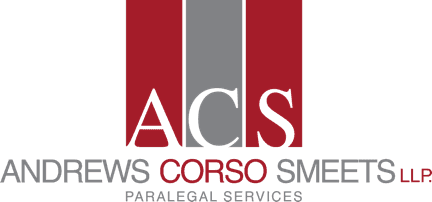NEWS

In an effort to improve road safety for all, starting Jan 2nd, 2019 the provincial government introduced new rules when it comes to distracted driving penalties in Ontario.
Now, first-time fines range from between $615 to $1,000, up from the previous minimum of $490. Also, those who are convicted of driving while distracted, including texting while behind the wheel, will now have their licence suspended for three days and be docked three demerit points for a first distracted-driving offence.
Have You Been Accused Of Distracted Driving In Ontario?
When it comes to Provincial Offences, such as distracted driving, all aspects of your case can be handled by our licensed and experienced paralegal agents, including preparation for the hearing, representation at the hearing and appeals, if necessary.
If you have received a ticket for alleged distracted driving in Hamilton, Kitchener and Niagara Falls, be sure to contact ACS Paralegal to learn how you can lower your fine or reduce your demerit points. Many traffic violations can be overthrown, saving you hundreds or even thousands of dollars in reduced fines and insurance premiums.
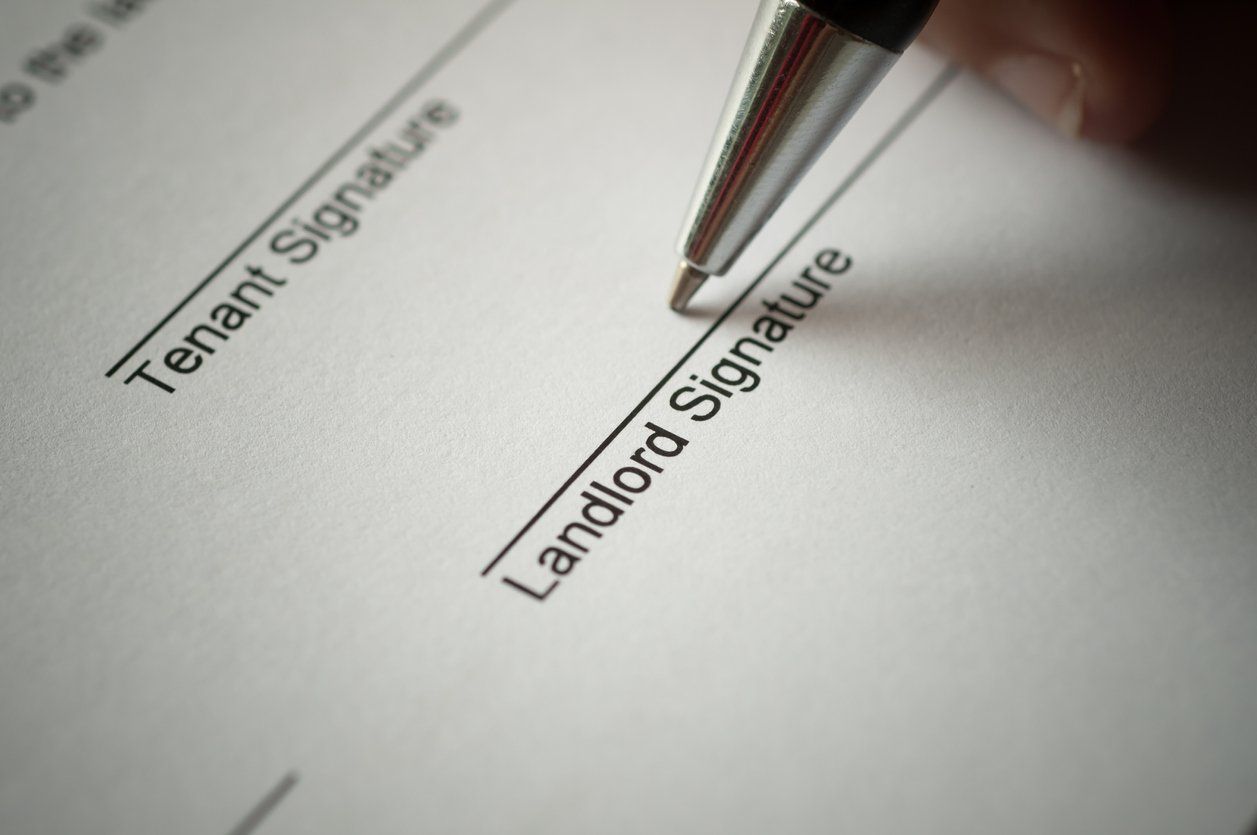
At ACS, our paralegals are experts when it comes to the complex field of Landlord and Tenant Law. With years of experience in dealing with arrears of rent issues and evicting tenants who are engaging in illegal acts, we will provide you with experienced representation at all Landlord Tenant Board Hearings.
We can also help explain your rights as landlord.
In Ontario, the Residential Tenancies Act (RTA) allots certain rights and responsibilities to landlords when it comes to most rental situations, such as:
Choosing a Tenant
Using rental history, income information, credit checks and references, as well as similar business practices as prescribed in the Ontario Human Rights Code regulations. However, you can’t discriminate based on race, place of origin, ethnic origin, religion, sex, age, sexual orientation, marital status, family status (e.g. children) or disability.
Rent Deposit
When you and the tenant sign the lease or tenancy agreement, you may collect a rent deposit. The maximum amount of this deposit is the same as the rent for 1 rental period (for example, 1 month or 1 week).
Rent Collection
You are entitled to collect full rent on the day that it is due.
Rental Entry
You may enter the rental home in order to complete maintenance or repairs, to show the unit to a potential tenant, or in an emergency. However, you must follow certain entry guidelines.
Rent Increase
You can increase the rent once in a 12-month period. However, you must follow rent increase guidelines.
Eviction
In certain situations, you can evict a tenant. If you give notice that you want them to leave, and they do not agree, you have the right to file an application and have a hearing with the Landlord and Tenant Board.
At ACS, our licensed paralegals have seen it all and know exactly what to expect. When you retain our expert legal services to help with your Landlord and Tenant Board matter, we typically implement the following steps.
· Initial Client Meeting
· Notice/Application Preparation
· Mediation
· Landlord & Tenant Board Hearing
· Small Claims Court Collections
· Landlord Representation At Tribunal
Put our knowledge of the complicated Landlord and Tenant Board procedures and the extensive Residential Tenancies Act, 2006, to work for you. Call today for a consultation.

It’s no secret that impaired driving is the leading criminal cause of death and injury in Canada. And whether medical or recreational, drugs do have the capacity to impair your ability to drive safely, increasing the risk of getting into a collision.
According to canada.ca, the percentage of Canadian drivers killed in vehicle crashes who test positive for drugs (40%), now actually exceeds the numbers who test positive for alcohol (33%).
What happens if you are thought to have cannabis or other drugs in your system?
Using Standard Field Sobriety Testing (SFST) and Drug Recognition Expert (DRE), police are well-trained to distinguish if you are under the influence of a drug and enforce drug-impaired driving laws. A new legislation also permits law enforcement to use approved drug screening devices to detect the recent presence of:
· THC From cannabis
· Cocaine
· Methamphetamine
Cannabis & Driving
Cannabis can impair each person differently and depends on several factors, such as: method of consumption, quantity, variety, THC levels, and if it was prescribed for medical use. Due to this, there is no regulator to inform drivers about how much cannabis can be consumed before it is unsafe to drive or how long a driver should wait to drive after consuming cannabis.
The safest way around this is not to drive with ANY cannabis in your system .
However, when it comes to Provincial Offences, such as drug-impaired driving, all aspects of your case can be handled by our licensed and experienced paralegal agents, including preparation for the hearing, representation at the hearing and appeals, if necessary.
If you have received a ticket for alleged driving under the influence of drugs throughout Hamilton, Kitchener and Niagara Falls, be sure to contact ACS Paralegal to learn how you can lower your fine or reduce your demerit points. Many traffic violations can be overthrown, saving you hundreds or even thousands of dollars in reduced fines and insurance premiums.

When you think about it, nurses and paralegals are similar careers. Both are expected to play an intricate part of their workplaces, offering important human services in a caring and professional manner. Oftentimes they are called upon to fill in whenever needed and can end up working longer hours as required.
Combing the two jobs is newer in Canada, so what is a Nurse Paralegal?
Nurse paralegals are nurses that have worked in the nursing profession and have legal training and schooling in health-care law, malpractice suits, and several other subjects that pertain to the law in the nursing profession. They study and analyze documents, assess patients’ treatments and prepare medical summaries for attorneys, insurance companies and hospitals.
Some may testify in courts on various claims or lawsuits. The nursing profession, is one of the fastest growing professions in the country. In fact, nursing jobs are expected to grow approximately 26 percent by the year 2020, and should add up to 212,000 nursing jobs within a 10-year span across Canada. Many people are unaware of the different career aspects of nursing. Becoming a nurse paralegal is one of the aspects that you can choose. This profession is becoming a highly desirable and rewarding career.
What Does A Nurse Paralegal Do?
Nurse Paralegals handle the legal aspects of nursing jobs. Insurance company’s, hospitals, government agency’s, management groups, and law firms are seeking qualified personnel trained in both medicine and law. They are also known as nurse consultants. The nurse paralegal reviews all aspects of nursing practice and makes sure they are being implemented according to law and that no one is stepping outside their rights as it pertains to the profession.
Both careers, nursing and paralegal, offer plenty of opportunities to specialize in a number of different areas and work in different facilities, institutions and environments. Both nursing and paralegal work provide opportunities for continuous learning, skills development, and further training!
At ACS we are pleased to be the paralegal company of choice throughout Hamilton and area! Should you have any questions about our many paralegal services, please don’t hesitate to contact us at 905-363-2550 or via email admin@acslegal.ca .
Keep up-to-date on the latest in Legal News, Small Claims , Landlord Tennant Issues , Provincial Offences and more by following our monthly blog!
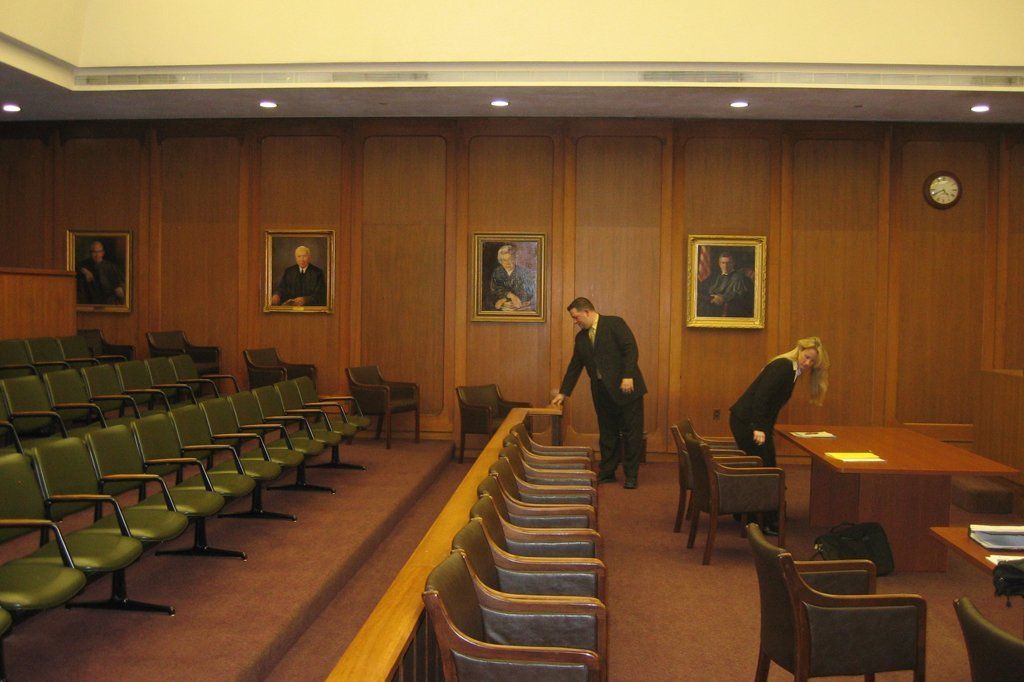
Did you know that home buyers will typically sue sellers in small claims court over issues that arise after closing only when the amount in dispute is $25,000 or less?
Why?
So you can make the claim without a paralegal or lawyer and the costs are relatively cheap. However, even though you don’t need a representation, you are much better off with some professional advice, either from a lawyer or paralegal.
Why?
There are many common mistakes people make when doing this by themselves.
Here are some of them:
· People forget that most lawsuits must be brought within two years or you forfeit your ability to sue.
· People do not sue the right person; for example, they sue a corporation without the word “Limited” at the end. Any judgment obtained may be worthless.
· They don’t provide enough evidence to justify their claim, including invoices, receipts and a clear explanation of the sequence of events.
At ACS our paralegals will review your claim and give you an opinion of its merit, but more importantly, will ask whether you will be able to collect any money if you win. If you win in court, sometimes after two years, the judge does not ask the loser for a cheque. You have to collect this money separately. After all, there is little point spending money and time to get a judgment against someone if you can’t collect. To garnish wages, you need to know where they work. To go after their bank accounts, you need to know where they bank. To go after real estate, you need to know where they may own property.
Whether you are the Plaintiff or Defendant, ACS can provide representation through the entire Small Claims Court process! From drafting and filing a claim to drafting and filing a Defence in response to a claim, as well as all the necessary legal procedures that follow, we focus on achieving the best possible outcome for clients – all in the most cost-effective manner. Should you have any questions about Small Claims or our many other paralegal services, please don’t hesitate to contact us at 905-363-2550 or via email admin@acslegal.ca .

In basic terms, skip tracing or skip locating is the act of finding (or “tracing”) someone who has left (or “skipped”) town, often for purposes of debt collection – hence the term "skiptrace". In these cases, a private investigator (or private detective) will attempt to locate the person's contact details, current address, and even location in real-time.
However, many private investigators choose not to use the term "skip trace", instead grouping skip trace cases in with other case types that involve finding someone on behalf of a client. These sorts of cases are generally called "locate cases."
A skip trace case is actually a subtype of regular locate cases. In a skip tracing case the person being located (known as the person of interest, or POI) doesn't wish to be found. This is an important point of distinction. A private investigator can only turn a person’s location and personal information over to a 3rd party when they have legal basis for doing so.
For ethical as well as legal reasons, private investigators will not turn personal information over to a client without a sound legal reason for the client to be seeking this person (for example to collect on a debt), or the consent of the POI.
To find someone, investigators working on a skip trace case will use everything from specialized investigator databases, public records/information, and open-source intelligence techniques to court filings and property deeds. Given the sheer amount of digital and paper records created by the average person, almost anyone can be located by an investigator given sufficient time.
Who do Private Investigators Look for in Skip Trace Cases?
Because people who are the subject of skip trace investigations usually don't want to be found, the subject of these cases are usually wanted by someone else to repay a debt, or because they are needed for a legal proceeding of some kind.
Examples of skip trace subjects include:
Important witnesses for attorneys
Missing heirs to estates
Subjects of legal proceedings who need to be served with process papers
Defendants, or an attorney’s client who has failed to appear for a court date
People who have skipped bail
Debtors who have defaulted
Customers or clients who have failed to pay a business for services rendered
The professional paralegal team at ACS are experts in money and property recovery in Southern Ontario. Our services include court representation, as well as the enforcement of judgments including skip tracing and private investigators. Should you have any questions about Skip Tracing or our many paralegal services, please don’t hesitate to contact us at 905-363-2550 or via email admin@acslegal.ca .
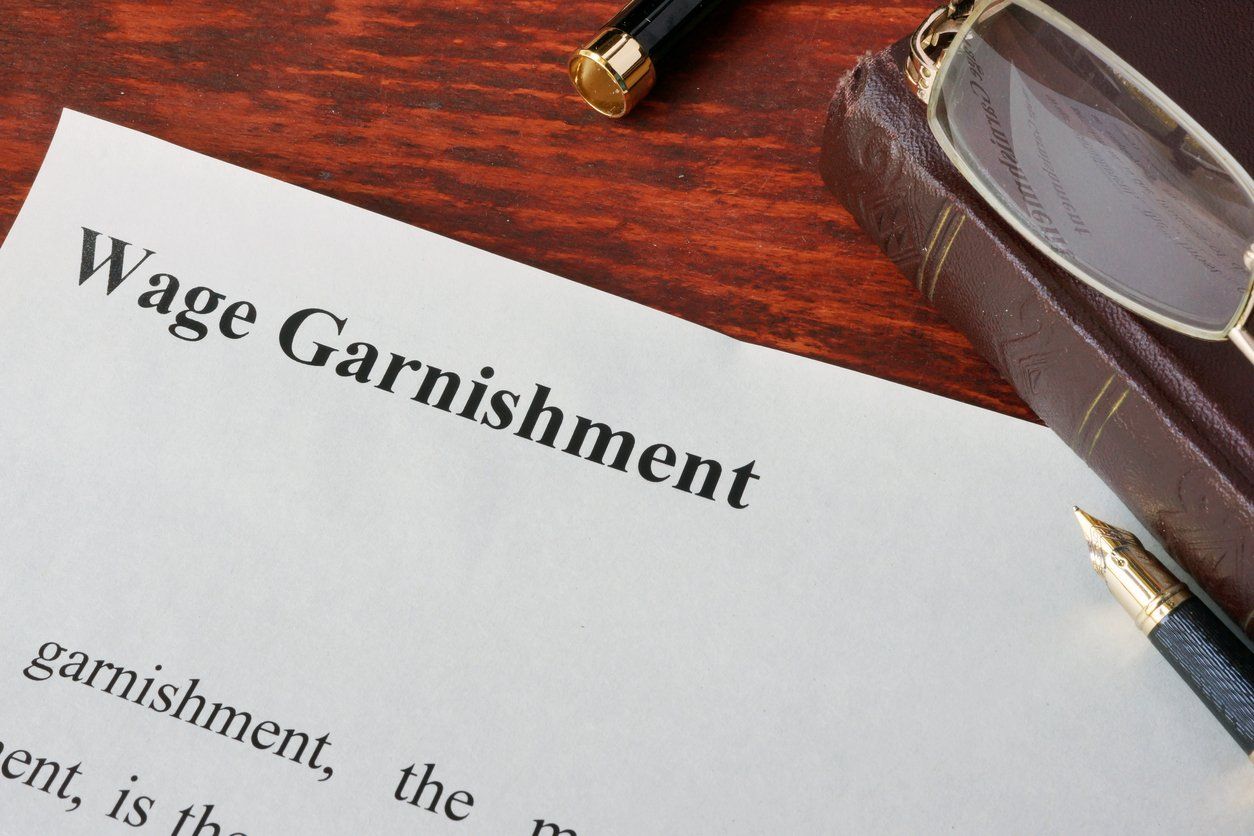
Life happens, and sometimes debts are not paid. However, if a Court Order is issued wages or bank accounts may be garnished. Garnishment is the process by which a creditor seizes a person’s wages or other financial accounts. Once a creditor sues, and obtains a judgment, it can use various means to collect the judgment. In Ontario, a wage garnishment is quite severe, as the involuntary check seizures will continue until the debt is satisfied. The Provincial Law in Ontario states that the maximum amount allowed to be garnished from an Ontario employee is 20% of their net monthly wages.
If you need to collect funds from a person or business that owes you money, we know that you want those funds collected in the most respectful, legal, and uncomplicated manner that maintains your organizational dignity and ethics. Likewise, you want the business debt economically collected. The ACS staff is strictly dedicated to providing comprehensive collections services in contracts and agreements, judgment enforcement, proprietor and tenant collections, liens and more. Our staff is comprised of expertly appointed debt collection paralegals, commercial collectors, investigators, and administrative support that can resolve your business debt in a proficient manner.
ACS has mastered the ethical means to develop creative recovery strategies. We will not do the same thing repeatedly, expecting results. We will execute unique strategies to improve your bottom line while offering personalized attention and quality service. In addition, we will work with you to determine an appropriate fee arrangement.
We recover in the following areas:
Judgement Order
Judgment Recovery
Judgment Enforcement
Landlord & Tenant Collections
Business to Business Collections
And More!
Although garnishments can often take some time to come to fruition, with the help of ACS Paralegal you can get what’s owed to you. While going to court is usually a last resort, we can assist in getting you a Judgment Order and validate the debt that is owed. Do you need representation in the Ontario Courtroom? When facing Small Claims Court in Southern Ontario, ACS can be a strong ally to helping you get what is rightfully yours. Should you have any questions about our many paralegal services, please don’t hesitate to contact us at 905-363-2550 or via email admin@acslegal.ca.

The main purpose of a settlement conference is for both parties to settle the dispute without having to go to trial. Even when a resolution cannot be reached, there still are many benefits to holding a conference, including to:
· Simplify the issues in the lawsuit
· Prepare each side if there is going to be a trial
· Ensure that everyone in the lawsuit knows all the important facts and evidence
Preparing For A Settlement Conference
When attending a settlement conference, you should be prepared to talk about the lawsuit in detail and bring all important information and documents available. Since information and discussions arising out of a settlement conference are not admissible at trial, it’s best to speak openly and try to resolve the matter.
However, if you are not prepared when you attend the conference, or simply do not show up at all, the judge may order you to pay the other side their expenses for having to come to the settlement conference. The judge may also strike out that person’s Claim or Defence and give judgment for the other side, and no trial will be held. So, it is very important to show up, or to notify the other side and the court if an emergency prevents you from attending.
Not only will attending the settlement conference make the trial easier, it may even help you settle the lawsuit. In fact, in most cases, a lawsuit settles before it goes to trial because settling saves both sides the time and expense of a trial.
In cases when a settlement is not reached, the court clerk will provide the parties involved with:
· A copy of the Endorsement Record/Order of the Court, which contains any orders that the judge made at the settlement conference.
· A Notice to Set Action Down for Trial that states that one of the parties must request a trial date and pay a fee. If neither party sets the action down for trial, the case will eventually be dismissed
Over the years, ACS has settled hundreds of cases at the Settlement Conference stage and will use that same experience and expertise to communicate on your behalf to obtain a favourable settlement or acquire the necessary information to properly prepare for Trial. It’s best practice to have an expert attend your pre-trials and settlement conferences. While it can be more expensive, in the long run, the expense is more than justifiable.
Should you have any questions about our many paralegal services, please don’t hesitate to contact us at 905-363-2550 or via email admin@acslegal.ca.
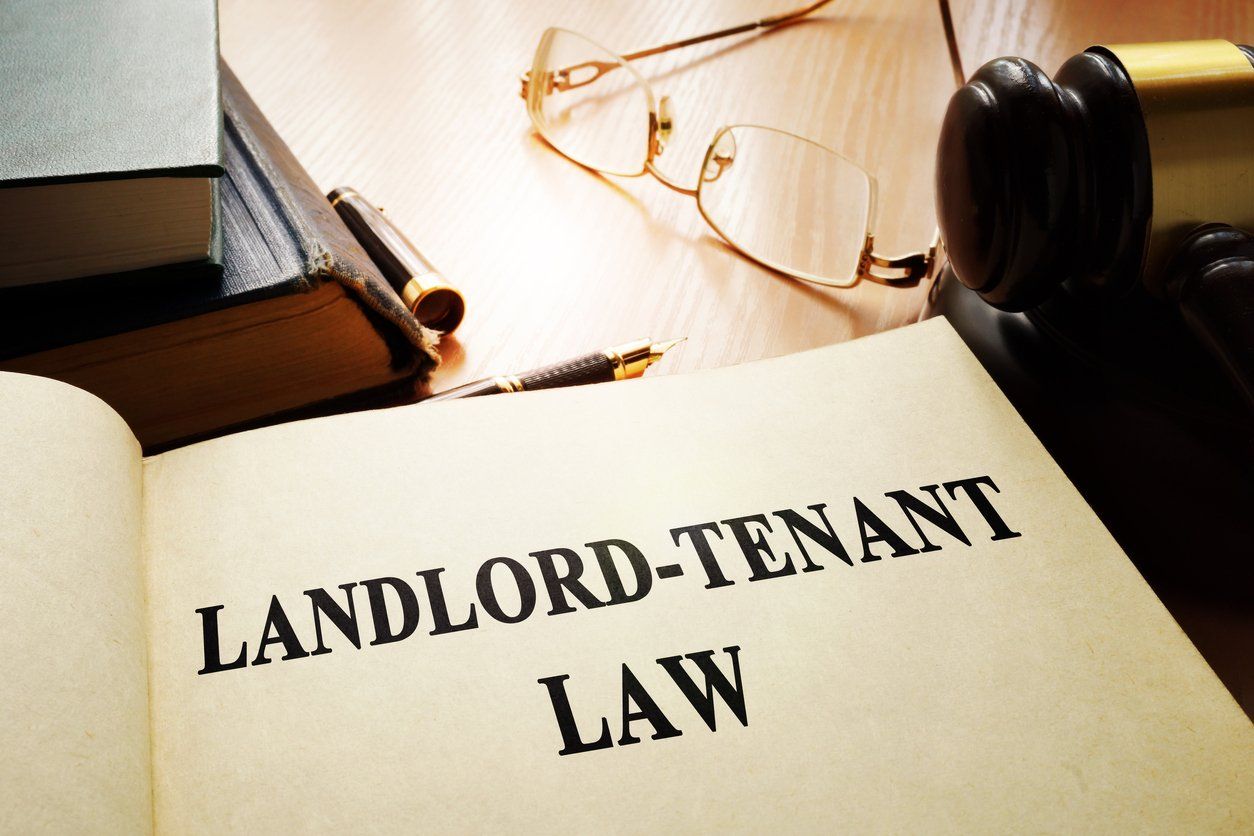
At ACS, we invite you to put our knowledge of the complicated Landlord and Tenant Board procedures and the extensive Residential Tenancies Act, 2006, to work for you.
Here are 10 things that people often don’t know about residential tenancy law in Ontario.
· A Landlord is able to designate his rental unit as smoke free, and may refuse to rent to smokers.
· A landlord is unable to prevent a tenant from keeping a pet. Any condition prohibiting pets is void. There are exception for dangerous, disruptive or destructive animals.
· Landlords are always responsible for cutting the grass.
· Landlords are always responsible for clearing the ice and snow
· A landlord is prohibited from charging a fee for late payment of rent.
· A landlord may offer a discount if the rent is paid on time or early.
· Tenant claims are subject to one-year limitation period.
· A Landlord must seek rent arrears and property damage judgments at the Ontario Small Claim Court if the tenant has vacated the rental unit.
· Utilities are only considered to be rent when the rent is ‘inclusive’ of utilities’. The Landlord-Tenant Board will not make an order for the payment of utilities.
Even if grounds for eviction have been established the Landlord-Tenant Board has the discretion to delay or postpone termination/eviction if it would be unfair to the tenant. At ACS, our paralegals are experts when it comes to the complex field of Landlord and Tenant Law. With years of experience in dealing with arrears of rent issues and evicting tenants who are engaging in illegal acts, we will provide you with experienced representation at all Landlord Tenant Board Hearings.
Should you have any questions about our many paralegal services, please don’t hesitate to contact us at 905-363-2550 or via email admin@acslegal.ca.
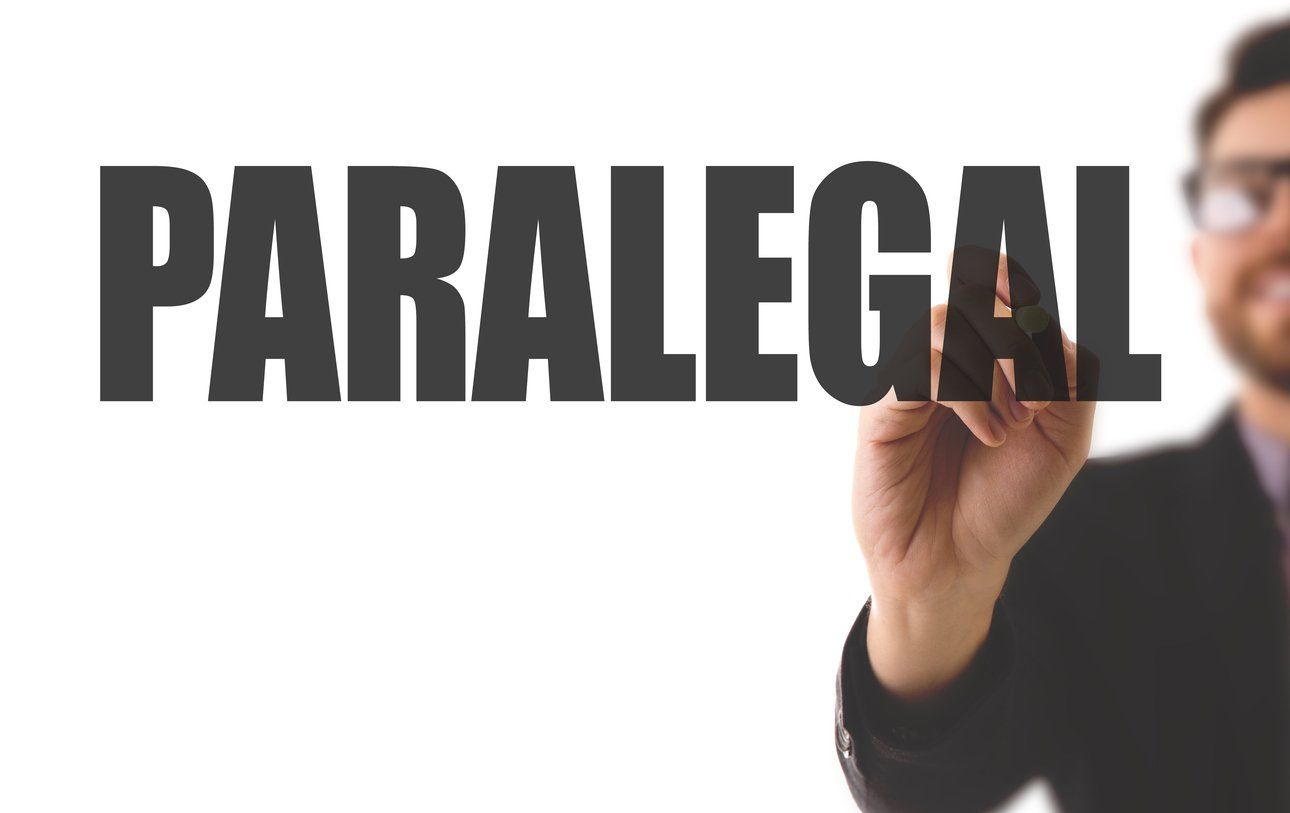
From courthouses and courtrooms, to government and lawyers’ offices, legal clinics, or independently representing clients in court and at hundreds of tribunals, the 7,500 or so paralegals throughout Ontario are the hottest members of the legal services community!
Well-known for being true advocates, paralegals represent clients who need help with legal issues and offer advice on dealing with legal matters that are within the “paralegal scope of practice.” Not only are they passionate about helping solve a variety of legal issues, paralegal fees are generally well below those of lawyers who practise law in these same areas.
So, what do they do, and how can they help you with your legal needs? Well, paralegals represent clients in four main areas:
Provincial Offences-related tickets
Small Claims Court (for civil suits of less than $25,000 per claim)
Summary conviction-prosecuted offences in criminal courts
Administrative tribunals – such as Ontario Human Rights Tribunal, Landlord and Tenant Board, Social Benefits Tribunal, municipal licensing tribunals and committees, housing and education committees
Here Are Some Quick Facts About Paralegals: (From Paralegal Scope Magazine)
Paralegals are licensed by the Law Society of Upper Canada to:
Give legal advice concerning legal interests, rights or responsibilities with respect to a proceeding or the subject matter of a proceeding
Draft or assist with drafting documents for use in a proceeding
Negotiate on behalf of a person who is a party to a proceeding
Paralegals who were not “grandfathered” – licensed after providing legal services for a number of years and passing an examination – have:
Graduated from a Law Society accredited paralegal services program
Completed at least 120 placement hours in a legal setting
Passed a licensing examination and have no “good character” issues
Paralegals must carry Errors & Omissions insurance, just as lawyers do.
Paralegals can appear before the Immigration and Refugee Board (IRB) to represent a client in an Immigration Review Board (IRB) hearing, and can provide legal services to clients for matters relating to an IRB hearing.
Paralegals are Commissioners of Oaths. This means that clients can swear an oath before a paralegal, who has confirmed the person’s identity and verified the person’s signature on a document, such as an affidavit or declaration.
Should you have any questions about our many paralegal services, please don’t hesitate to contact us at905-524-3513. or via email admin@acslegal.ca.
Keep up-to-date on the latest in Legal News, Small Claims , Landlord Tennant Issues , Provincial Offences and more by following our monthly blog!

In an effort to improve road safety for all, starting Jan 2nd, 2019 the provincial government introduced new rules when it comes to distracted driving penalties in Ontario.
Now, first-time fines range from between $615 to $1,000, up from the previous minimum of $490. Also, those who are convicted of driving while distracted, including texting while behind the wheel, will now have their licence suspended for three days and be docked three demerit points for a first distracted-driving offence.
Have You Been Accused Of Distracted Driving In Ontario?
When it comes to Provincial Offences, such as distracted driving, all aspects of your case can be handled by our licensed and experienced paralegal agents, including preparation for the hearing, representation at the hearing and appeals, if necessary.
If you have received a ticket for alleged distracted driving in Hamilton, Kitchener and Niagara Falls, be sure to contact ACS Paralegal to learn how you can lower your fine or reduce your demerit points. Many traffic violations can be overthrown, saving you hundreds or even thousands of dollars in reduced fines and insurance premiums.

At ACS, our paralegals are experts when it comes to the complex field of Landlord and Tenant Law. With years of experience in dealing with arrears of rent issues and evicting tenants who are engaging in illegal acts, we will provide you with experienced representation at all Landlord Tenant Board Hearings.
We can also help explain your rights as landlord.
In Ontario, the Residential Tenancies Act (RTA) allots certain rights and responsibilities to landlords when it comes to most rental situations, such as:
Choosing a Tenant
Using rental history, income information, credit checks and references, as well as similar business practices as prescribed in the Ontario Human Rights Code regulations. However, you can’t discriminate based on race, place of origin, ethnic origin, religion, sex, age, sexual orientation, marital status, family status (e.g. children) or disability.
Rent Deposit
When you and the tenant sign the lease or tenancy agreement, you may collect a rent deposit. The maximum amount of this deposit is the same as the rent for 1 rental period (for example, 1 month or 1 week).
Rent Collection
You are entitled to collect full rent on the day that it is due.
Rental Entry
You may enter the rental home in order to complete maintenance or repairs, to show the unit to a potential tenant, or in an emergency. However, you must follow certain entry guidelines.
Rent Increase
You can increase the rent once in a 12-month period. However, you must follow rent increase guidelines.
Eviction
In certain situations, you can evict a tenant. If you give notice that you want them to leave, and they do not agree, you have the right to file an application and have a hearing with the Landlord and Tenant Board.
At ACS, our licensed paralegals have seen it all and know exactly what to expect. When you retain our expert legal services to help with your Landlord and Tenant Board matter, we typically implement the following steps.
· Initial Client Meeting
· Notice/Application Preparation
· Mediation
· Landlord & Tenant Board Hearing
· Small Claims Court Collections
· Landlord Representation At Tribunal
Put our knowledge of the complicated Landlord and Tenant Board procedures and the extensive Residential Tenancies Act, 2006, to work for you. Call today for a consultation.

It’s no secret that impaired driving is the leading criminal cause of death and injury in Canada. And whether medical or recreational, drugs do have the capacity to impair your ability to drive safely, increasing the risk of getting into a collision.
According to canada.ca, the percentage of Canadian drivers killed in vehicle crashes who test positive for drugs (40%), now actually exceeds the numbers who test positive for alcohol (33%).
What happens if you are thought to have cannabis or other drugs in your system?
Using Standard Field Sobriety Testing (SFST) and Drug Recognition Expert (DRE), police are well-trained to distinguish if you are under the influence of a drug and enforce drug-impaired driving laws. A new legislation also permits law enforcement to use approved drug screening devices to detect the recent presence of:
· THC From cannabis
· Cocaine
· Methamphetamine
Cannabis & Driving
Cannabis can impair each person differently and depends on several factors, such as: method of consumption, quantity, variety, THC levels, and if it was prescribed for medical use. Due to this, there is no regulator to inform drivers about how much cannabis can be consumed before it is unsafe to drive or how long a driver should wait to drive after consuming cannabis.
The safest way around this is not to drive with ANY cannabis in your system .
However, when it comes to Provincial Offences, such as drug-impaired driving, all aspects of your case can be handled by our licensed and experienced paralegal agents, including preparation for the hearing, representation at the hearing and appeals, if necessary.
If you have received a ticket for alleged driving under the influence of drugs throughout Hamilton, Kitchener and Niagara Falls, be sure to contact ACS Paralegal to learn how you can lower your fine or reduce your demerit points. Many traffic violations can be overthrown, saving you hundreds or even thousands of dollars in reduced fines and insurance premiums.
